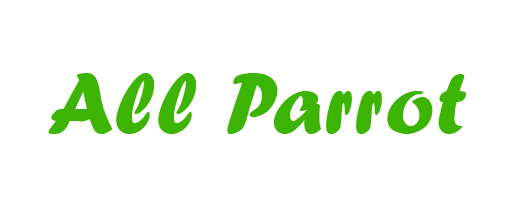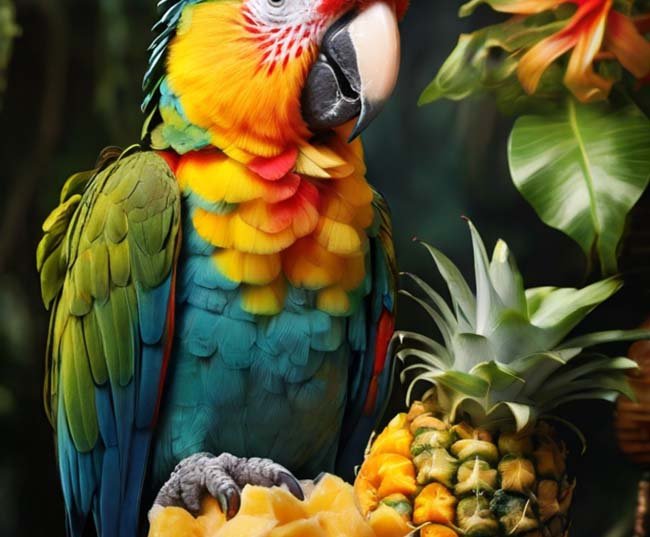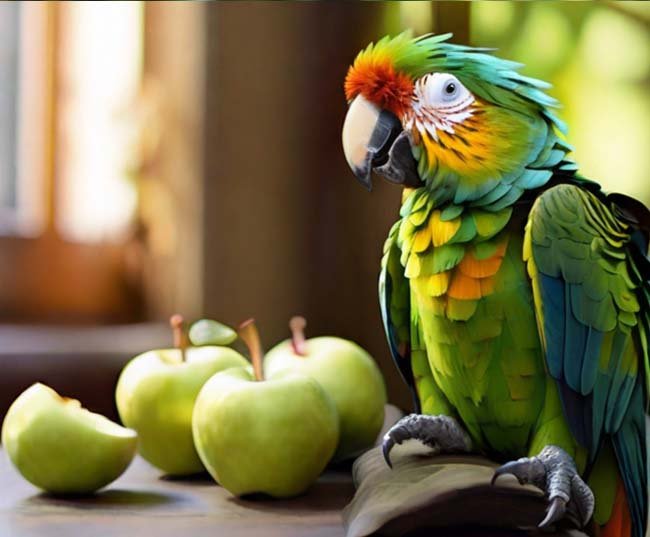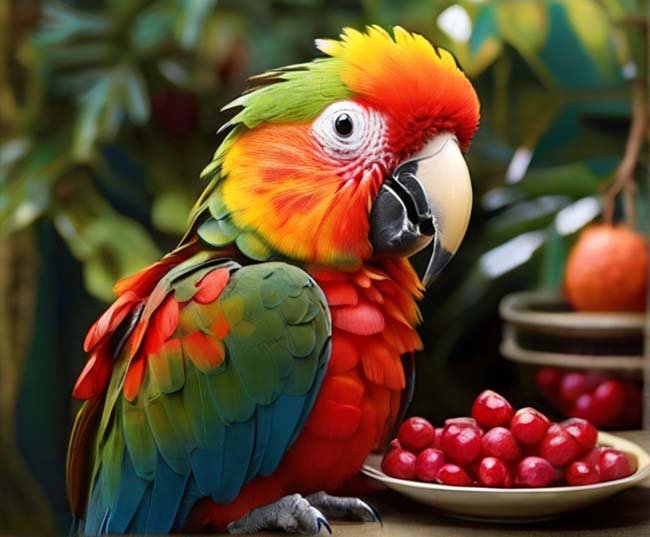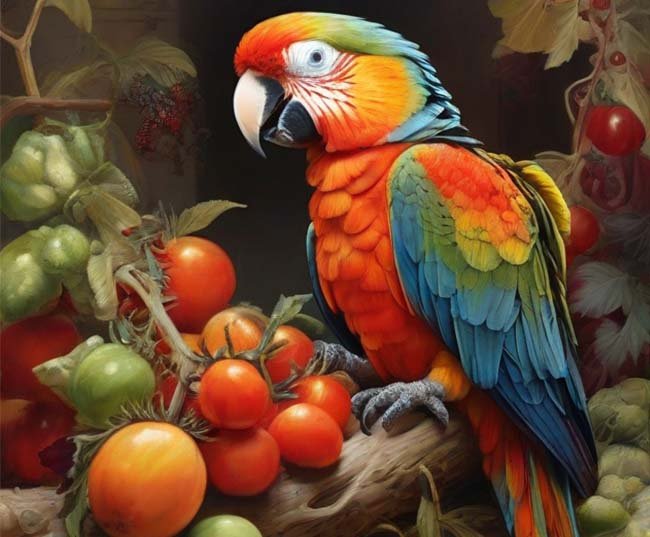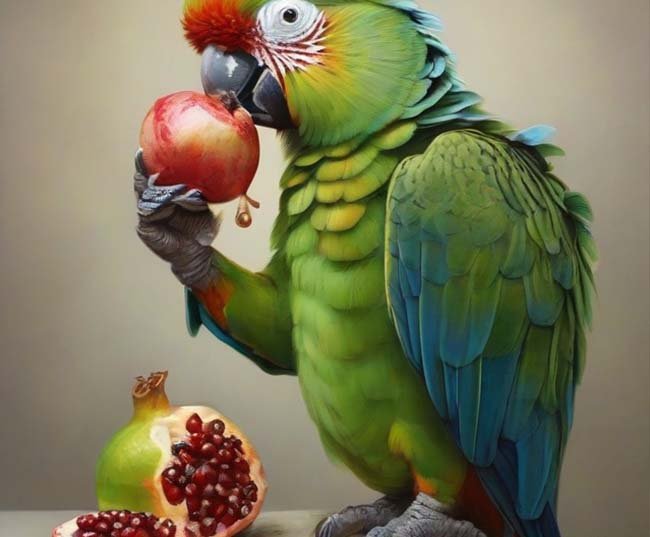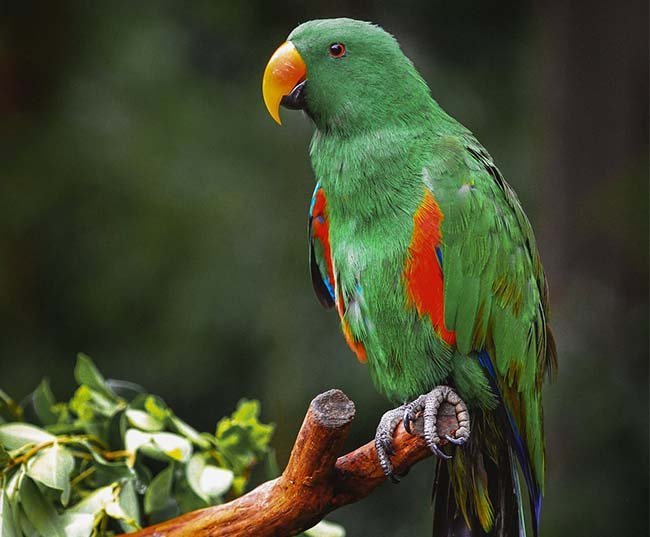Can Parrots Eat Celery? A Detailed Guide
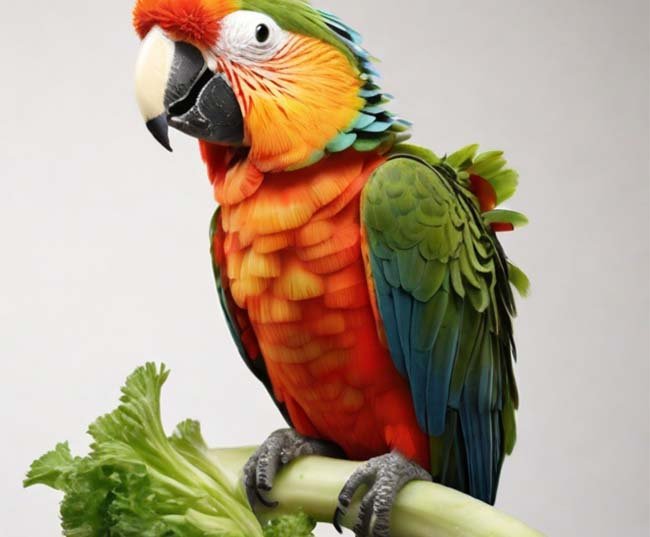
There’s nothing quite like watching our feathered friends enjoy a tasty treat, but it’s important to ensure that they are consuming foods that are not only delicious but also safe and nutritious for them.
If you’re wondering, “Can parrots eat celery?”, you’ve come to the right place.
In this comprehensive guide, we will explore whether celery is a suitable addition to your parrot’s diet and provide tips on how to include it safely.
Key Takeaways:
- Celery can be a safe and nutritious addition to your parrot’s diet.
- Parrots require a balanced diet that includes fruits, vegetables, grains, and occasional protein sources.
- It’s important to consider potential hazards, such as pesticides and choking hazards when feeding celery to parrots.
- Proper preparation and portion sizes are crucial to ensure celery is appropriate for consumption by parrots.
- Celery can bring several health benefits to parrots, such as immune system support and enhanced digestion.
Can Parrots Eat Celery?
Yes, parrots can eat celery in moderation, but it’s low in nutrients. Offer as an occasional treat.
1). Understanding Parrot Diets
Parrots are intelligent and social birds that require a well-balanced diet to maintain their health and vitality.
A good diet for parrots should include a variety of fruits, vegetables, grains, and occasional protein sources. Including celery in a parrot’s diet can be a nutritious addition to their regular menu.
Parrots require a diet that is rich in nutrients and low in calories. A well-balanced diet should provide them with all the vitamins and minerals they need to maintain a healthy immune system, proper digestion, and overall well-being. Including a variety of foods is the best way to ensure they receive all the essential nutrients.
When introducing celery to a parrot’s diet, it’s important to consider their existing preferences and dietary needs.
Some parrots may be picky eaters, so it’s essential to offer them a variety of foods to find what they prefer.
It’s also important to remember that celery should not be the only food included in a parrot’s diet.
Instead, it should be used to enhance the variety of foods they consume. A mixture of fruits, vegetables, grains, and some protein sources should make up the bulk of their diet.
When introducing new foods to a parrot’s diet, it’s essential to do so gradually.
This will help to prevent any adverse reactions and allow them to adjust to the new food slowly. Additionally, it will ensure that celery is suitable for their digestive system and does not cause any negative health effects.
| Nutrient | Celery (1 cup, chopped) |
|---|---|
| Protein | 1.2 g |
| Fat | 0.2 g |
| Carbohydrates | 5.9 g |
| Fiber | 2.4 g |
| Potassium | 263.7 mg |
| Vitamin C | 3.1 mg |
| Vitamin K | 29.6 mcg |
Celery is low in calories and high in nutrients, meaning it can provide many benefits to a parrot’s diet.
With only 16 calories per cup, it is a great addition to a parrot’s food bowl. Celery is also a great source of vitamins and minerals, including vitamin K, vitamin C, potassium, and folate.
These vitamins and minerals can help support the immune system, assist in proper digestion, and promote overall health and well-being. Additionally, the fiber in celery can aid in digestion and prevent constipation in parrots.
However, it’s essential to ensure that the celery is clean and free from any chemicals or pesticides before offering it to parrots. This can be done by washing it thoroughly before serving it to the bird.
2). Nutritional Value of Celery
Celery is a nutrient-dense vegetable that can be a valuable addition to a parrot’s diet. It is a rich source of essential vitamins and minerals, including:
| Vitamin K | Celery is an excellent source of vitamin K, which is essential for proper blood clotting and bone health. |
|---|---|
| Vitamin C | Celery is also a good source of vitamin C, an antioxidant that supports the immune system and promotes healthy skin and feathers. |
| Potassium | Parrots need potassium to regulate fluid balance and support heart function, and celery provides a significant amount of this essential mineral. |
| Folate | Folate is critical for DNA synthesis and cell growth, and celery is a natural source of this important nutrient. |
Celery is also an excellent source of dietary fiber, which helps maintain a healthy digestive system in parrots. Including celery in a parrot’s diet can provide numerous health benefits and promote overall well-being.
3). Safety Considerations
If you’re considering adding celery to your parrot’s diet, it’s crucial to be aware of the potential hazards that come with the vegetable.
While celery is safe for humans, it can pose certain risks for our feathered friends, including:
- Choking hazards: Parrots may have difficulty swallowing large pieces of celery, which could lead to choking or other complications.
- Pesticides: Celery is one of the most heavily sprayed vegetables, so it’s essential to buy organic celery or wash it thoroughly before feeding it to your parrot.
- Allergenic properties: While rare, parrots may have an allergic reaction to celery, and in such cases, it should be removed from their diet immediately.
It’s always best to err on the side of caution and introduce celery into your parrot’s diet slowly and in small quantities, observing their response and behavior.
If you notice any adverse effects, consult your avian veterinarian immediately.
4). Preparing Celery for Parrots
If you’re wondering, “Can birds eat celery?” the answer is yes! However, it’s important to take a few precautions and properly prepare it before feeding it to your feathered friend.
Follow these steps to ensure that the celery is clean and safe to consume:
Washing the Celery
First, make sure to thoroughly wash the celery with water to remove any dirt or pesticides.
Organic celery is a good option, but if it’s not available, wash conventionally grown celery carefully before serving it to your parrot.
Chopping the Celery
Next, chop the celery into small pieces that are easy for your parrot to manage. You can also grate it if your parrot prefers smaller pieces. Avoid giving your parrot large pieces of celery as they can be a choking hazard.
Serving Size
Finally, it’s important to serve celery in moderation. Too much celery can cause digestive upset.
A good rule of thumb is to offer your parrot a small piece of celery once or twice a week, depending on their dietary needs and preferences.
5). Introducing Celery to Your Parrot
While celery can be a nutritious addition to your parrot’s diet, it’s important to introduce new foods gradually to prevent any adverse reactions.
Start by offering a small piece of celery to your parrot. Observe their response and behavior. If all goes well, you can gradually increase the quantity of celery over several weeks.
Remember to monitor your parrot’s droppings for any changes, which could indicate digestive issues.
These changes could include a change in consistency, color, or frequency. If you notice anything unusual, reduce the amount of celery offered and consult with a veterinarian.
As with any new food item, it’s essential to continue offering a variety of other fresh fruits and vegetables as part of a balanced diet. This helps to ensure that your parrot receives all the nutrients they need for optimal health.
With patience and care, you can safely introduce celery into your parrot’s diet and enjoy the many health benefits it provides.
6). Benefits of Celery for Parrots
Incorporating celery into a parrot’s diet can bring various health benefits due to the vegetable’s nutritional content. Let’s explore some of the advantages:
| Nutrient | Function |
|---|---|
| Vitamin K | Aids in blood clotting and bone metabolism |
| Vitamin C | Helps in the formation of collagen, which is crucial for skin and joint health |
| Potassium | Regulates the body’s fluid balance and strengthens muscles |
| Folate | Crucial for cell growth and metabolism, can reduce the risk of birth defects in eggs laid by breeding birds |
| Dietary Fiber | Facilitates digestion and promotes bowel movements, reducing the risk of gastrointestinal problems |
Incorporating celery into a parrot’s diet can support their immune system, enhance digestion, improve bone health and reduce the risk of certain medical problems.
Parrots can benefit from the various vitamins, minerals, and fiber present in celery making it a healthier alternative to sugar or high-sugar-content food.
As with any dietary modification, watch for any possible negative effects or allergic reactions that may be harmful to parrots.
7). Moderation and Variety
While celery can be a nutritious addition to a parrot’s diet, it should be offered in moderation as part of a varied diet.
Providing a balanced mix of fruits, vegetables, grains, and occasional protein sources is essential for ensuring your parrot receives all the essential nutrients they need.
Including a variety of foods in your parrot’s diet not only keeps them healthy but also provides mental stimulation and prevents boredom.
For example, consider offering a range of leafy greens such as spinach, kale, and Swiss chard, along with other vegetables like carrots, broccoli, and bell peppers.
Avoid relying solely on celery and other individual foods as the primary source of nutrition, as this can lead to imbalances and deficiencies over time. Instead, aim to provide a diverse selection of healthy foods for your parrot to enjoy.
8). Celery Alternatives
While celery is a nutritious and safe food for parrots, it’s always good to have variety in their diet.
Here are some vegetables and leafy greens that can be excellent celery alternatives
- Bell Peppers – Rich in Vitamin C and Vitamin A, bell peppers can be chopped into small pieces and served to parrots.
- Carrots – Carrots are a good source of Vitamin A and fiber. Grated carrots can be a sweet treat for parrots.
- Kale – This leafy green is full of nutrients such as Vitamin C, Vitamin K, and iron. It can be served chopped or blended into a mash for a nutritious meal.
- Spinach – Spinach is high in iron and calcium and can be a delicious addition to your parrot’s diet.
- Cucumber – This hydrating vegetable can be a refreshing treat on a hot day. Cucumbers are also rich in Vitamin C and can be served peeled and sliced.
By introducing these various fruits and vegetables into your parrot’s diet, you can provide them with different textures, flavors, and nutrients.
Remember to always introduce new foods slowly and observe your parrot’s reaction.
9). Observing Your Parrot’s Response
Introducing a new food to your parrot’s diet, such as celery, requires careful observation to ensure it agrees with them.
While celery is generally considered safe for parrots, every bird is unique and may have different reactions to new foods.
Here are some guidelines to help you observe your parrot’s response to celery:
- Start by offering small pieces of celery to your parrot. This will allow you to monitor their reaction to the new food without overwhelming their system.
- Observe your parrot’s behavior and appearance after consuming celery. Some potential signs of adverse reactions include decreased appetite, vomiting, diarrhea, or changes in behavior, such as increased aggression or lethargy.
- If your parrot experiences any negative effects, discontinue offering celery immediately and consult with an avian veterinarian.
- On the other hand, if your parrot appears to enjoy the celery and exhibits no signs of negative effects, you can continue to offer it to them in moderation as part of a varied diet.
By following these guidelines, you can ensure that celery is a safe and beneficial addition to your parrot’s diet.
10). Consulting an Avian Veterinarian
If you’re considering adding celery to your parrot’s diet, it’s always a good idea to consult with an avian veterinarian first.
Avian veterinarians specialize in the care and treatment of birds and can provide personalized advice taking into account your parrot’s specific dietary needs and health conditions.
Avian veterinarians can help you determine whether celery is appropriate for your parrot and provide guidance on the best way to incorporate it into their diet.
They can also help you monitor your parrot’s health and make recommendations for other nutrient-rich foods that can complement their diet.
Remember that every parrot is unique, and what works for one may not work for another.
Consulting with an avian veterinarian can help ensure that you’re providing your parrot with a balanced and healthy diet that meets their individual needs.
Make sure to ask your avian veterinarian any questions you may have regarding including celery in your parrot’s diet, and follow their recommendations for introducing new foods to prevent any adverse reactions.
By working with an avian veterinarian, you can ensure that your parrot is receiving the best possible care and nutrition.
Conclusion
In summary, parrots can safely consume celery as part of a balanced and varied diet.
Celery offers several nutritional benefits, including vitamins, minerals, and fiber, that may help support their overall health.
It’s crucial to prepare celery properly by washing it thoroughly and chopping it into small pieces to prevent choking hazards.
Additionally, it’s essential to introduce new foods gradually and observe your parrot’s response to avoid any adverse effects.
If you have any concerns or questions about including celery in your parrot’s diet, it’s always wise to consult with an avian veterinarian.
They can provide personalized advice based on your parrot’s unique dietary needs and health status.
Remember to offer celery in moderation and alongside other nutrient-rich foods to ensure your parrot receives all the essential nutrients they require.
With these precautions in mind, celery can be a healthy and enjoyable addition to your parrot’s diet.
Frequently Asked Questions
Can parrots eat celery?
Yes, parrots can eat celery. It can be a healthy addition to their diet when prepared and offered appropriately. Celery is low in calories and contains vitamins, minerals, and fiber that can benefit parrots.
What is the nutritional value of celery for parrots?
Celery is rich in nutrients such as vitamin K, vitamin C, potassium, and folate. It also provides dietary fiber, which aids in digestion. Including celery in a parrot’s diet can contribute to their overall nutrition and well-being.
Is celery safe for parrots to eat?
Generally, celery is safe for parrots to consume. However, it is important to consider potential risks such as pesticides, choking hazards, and allergic reactions. Proper preparation and moderation are key to ensuring the safety of celery for parrots.
How should I prepare celery for my parrot?
Before offering celery to your parrot, wash it thoroughly to remove any dirt or pesticides. Chop it into small, manageable pieces, removing any tough fibers. Serve it fresh to maintain its nutritional value and ensure it is safe for your parrot to consume.
How can I introduce celery to my parrot’s diet?
When introducing celery or any new food to your parrot’s diet, it is best to do so gradually. Start by offering small amounts and monitor your parrot’s response. Slowly increase the quantity over time, ensuring that your parrot tolerates and enjoys celery.
What are the benefits of including celery in a parrot’s diet?
Celery can provide various health benefits for parrots. It can support their immune system, aid in digestion, and contribute to overall well-being. The vitamins, minerals, and fiber in celery can promote optimal health in parrots when incorporated into a balanced diet.
Should celery be the only food in my parrot’s diet?
No, celery should not be the sole food in your parrot’s diet. Parrots require a balanced mix of fruits, vegetables, grains, and occasional protein sources to meet their nutritional needs. Celery should be offered as part of a varied diet, ensuring your parrot receives a wide range of nutrients.
Can I offer alternatives to celery to my parrot?
Yes, it is beneficial to offer a variety of vegetables and leafy greens to your parrot. While celery can be included in their diet, you can also consider alternatives such as carrots, bell peppers, and leafy greens like spinach or kale. Providing a variety of nutritious foods ensures a balanced diet for your parrot.
How can I observe my parrot’s response to celery?
After introducing celery to your parrot’s diet, observe their behavior and health. Look for any signs of adverse reactions or digestive issues. If your parrot shows any negative effects or discomfort, discontinue offering celery and consult with an avian veterinarian.
Should I consult with an avian veterinarian before feeding celery to my parrot?
It is always a good idea to consult with an avian veterinarian if you have any concerns or questions about including celery or any other new food in your parrot’s diet. They can provide personalized advice based on your parrot’s specific dietary needs and overall health.
